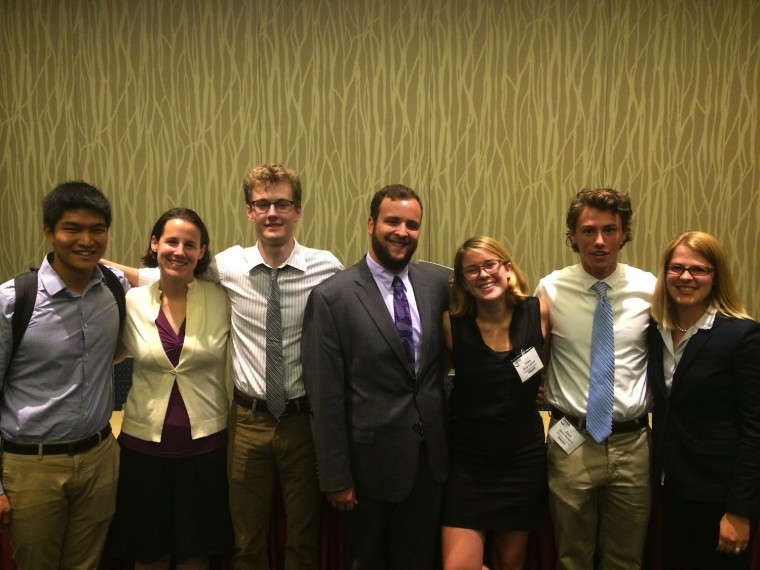Erika Franklin Fowler, assistant professor of government and co-director of the Wesleyan Media Project, recently joined the Campaign Finance Institute's (CFI) Academic Advisory Board. Fowler was one of 16 academics appointed to the board, which advises CFI as it plans and works through its research agenda. Also appointed was Michael Franz, co-director of the Wesleyan Media Project and a professor at Bowdoin College. Founded in 1999, CFI is a campaign finance policy think tank. According to the website, its original work is published in academic journals, and is regularly used by the media and policymakers. Its tools are made available to…
Assistant Professor of Government Erika Franklin Fowler, Project Manager in the Government Department Laura Baum, and four students presented a paper titled, "A Messenger Like Me: The Effect of Ordinary Spokespeople in Campaign Advertising" at the 2014 annual meeting of the American Political Science Association Conference, Aug. 30 in Washington, D.C. The student authors are P. Marshal Lawler '16, Michael Linden '15, Eliza Loomis '15 and Zachary Wulderk '15. The paper considers the effects of using non-elite spokespeople (ie. "the everyman") in political advertising. The authors draw upon the Wesleyan Media Project's vast database of political advertising, as well as original…
The Wesleyan Media Project's research was cited by U.S. Senator Angus King of Maine during a hearing April 30 of the Senate Committee on Rules & Administration. The subject of the hearing was "Dollars and Sense: How Undisclosed Money and Post-McCutcheon Campaign Finance Will Affect 2014 and Beyond." Watch a recording of the webcast here. The Wesleyan Media Project, directed by Assistant Professor of Government Erika Franklin Fowler and collaborators at Bowdoin College and Washington State University, works to increase transparency about political advertising. It tracks political ad airings on television and reports in real time about ad sponsors, spending,…
The Wesleyan Media Project has received a grant of $74,800 from the John S. and James L. Knight Foundation to track and analyze campaign ad spending in the 2014 midterm election cycle. The project is directed by Assistant Professor of Government Erika Franklin Fowler, along with Michael Franz of Bowdoin College and Travis Ridout of Washington State University. A resource for journalists, policymakers, scholars and voters, the project has worked to increase transparency in federal elections since it was established in 2010 with support from Knight Foundation. Read more about the grant and the Wesleyan Media Project’s work here.



